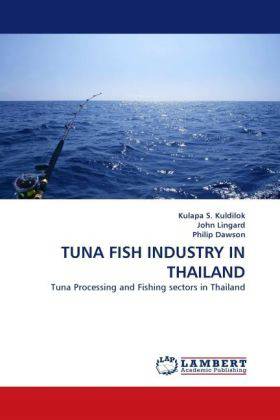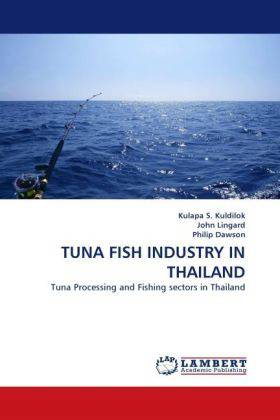
- Afhalen na 1 uur in een winkel met voorraad
- Gratis thuislevering in België vanaf € 30
- Ruim aanbod met 7 miljoen producten
- Afhalen na 1 uur in een winkel met voorraad
- Gratis thuislevering in België vanaf € 30
- Ruim aanbod met 7 miljoen producten
Zoeken
TUNA FISH INDUSTRY IN THAILAND
Tuna Processing and Fishing sectors in Thailand
Kulapa S. Kuldilok, John Lingard, Philip Dawson
Paperback | Engels
€ 82,45
+ 164 punten
Omschrijving
Although Thailand is currently the leading tuna fish exporter in the world, this research asks whether the Thai tuna industry really sustainable. Almost all the raw tuna is imported prior to processing for re-export, and tuna stocks are known to be over-fished. This research examines the economic, environmental, and social sustainability aspects of the Thai tuna industry. There are three major parts - forecasting future tuna demand, internal and international competitiveness analysis, and sustainable livelihoods of processing workers analysis. The Thai tuna industry will not probably be environmentally, economically, and socially sustainable without substantial adjustment. The industry faces many severe problems in the near future as reflected in lower demand forecasts, lack of raw material, unprofitable fishing operations, emerging shortages of motivated, well-paid, skilled labour, and binding rules of origin and tariff restrictions. As this analysis clearly demonstrates, maintaining both tuna fishing and the processing industry in Thailand will be difficult.
Specificaties
Betrokkenen
- Auteur(s):
- Uitgeverij:
Inhoud
- Aantal bladzijden:
- 196
- Taal:
- Engels
Eigenschappen
- Productcode (EAN):
- 9783838351605
- Verschijningsdatum:
- 29/06/2010
- Uitvoering:
- Paperback
- Afmetingen:
- 150 mm x 220 mm
- Gewicht:
- 277 g

Alleen bij Standaard Boekhandel
+ 164 punten op je klantenkaart van Standaard Boekhandel
Beoordelingen
We publiceren alleen reviews die voldoen aan de voorwaarden voor reviews. Bekijk onze voorwaarden voor reviews.







